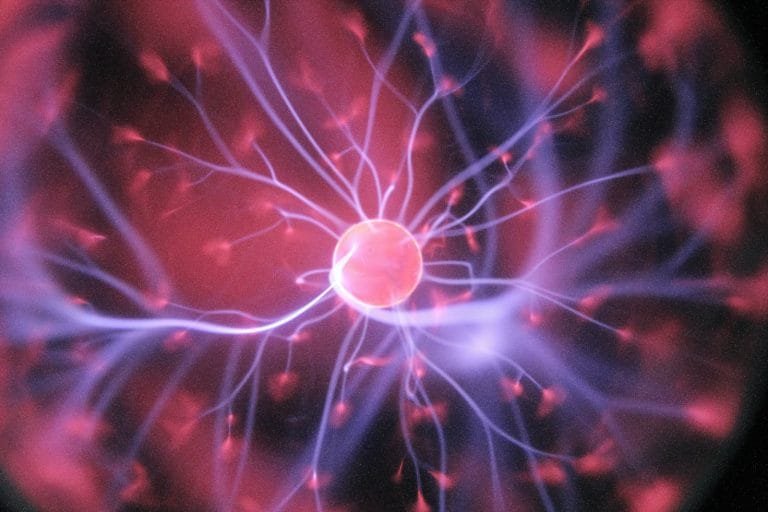Collagen Benefits, Sources, and Types: A Comprehensive Article Roundup

Wellness Fixation is reader supported, meaning I may earn a small commission if you purchase something through my links at no extra cost to you. Thanks for your support! Learn more
Collagen Benefits, Sources, and Types: A Comprehensive Article Roundup
Introduction: What is Collagen?
Collagen is a protein that plays a critical role in the health and appearance of your skin, hair, nails, joints, and more. It’s no wonder why it has become one of the hottest buzzwords in the wellness industry lately. If you’re curious about what collagen can do for you or where to find it, keep reading! In this comprehensive article roundup, we’ll explore everything from the different types of collagen to its many benefits and sources. So sit back, grab a cup of bone broth (a great source of collagen!), and prepare to learn all about this powerful protein.
The Different Types of Collagen
Collagen is a protein found abundantly in our body that acts as a connective tissue. It plays an essential role in maintaining the structure, strength and elasticity of various tissues such as skin, tendons, cartilage and bones.
There are more than 16 types of collagen present in our body but Type I, II and III are the most prominent ones. Type I collagen provides structure to the skin, bones and organs while Type II collagen supports joint health by providing cushioning between bones. Type III is found mainly in blood vessels and internal organs.
Type IV collagen is important for forming basement membranes that act as a filter system allowing substances to pass through while preventing others from entering unwanted areas of the body. Similarly, Type V helps form cell surfaces while Type VI provides support around cells.
Other types of collagens like VII-XVIII have their unique roles such as anchoring fibrils which attach epidermis to dermis (Type VII), providing structural support within muscles (Type X), aiding clotting mechanisms during injury (Type XIII) etc.
It’s interesting how different types of collagens work together seamlessly performing diverse functions throughout the human anatomy.
The Many Benefits of Collagen
Collagen is a protein that plays a significant role in the health of our skin, hair, nails, bones and joints. It’s no wonder why it’s become such a popular supplement in recent years. But what exactly are its benefits?
Firstly, collagen can improve skin elasticity by strengthening the dermis layer and reducing wrinkles. This is because as we age, our natural production of collagen decreases.
Secondly, consuming collagen regularly may support bone and joint health by promoting cartilage regeneration and reducing inflammation.
Thirdly, adding collagen to your diet could help boost muscle mass due to its high concentration of amino acids glycine and proline which aid in muscle repair.
Collagen has been shown to improve gut health by supporting the intestinal lining and aiding digestion.
In summary, incorporating sources of collagen into your diet can have numerous benefits for overall health from head to toe.
The Best Sources of Collagen
Collagen is a protein that’s found in abundance in the human body. However, as we age, our bodies start producing less collagen which can lead to wrinkles and joint pain. That’s why it’s important to incorporate foods that are rich in collagen into our diets.
One of the best sources of collagen is bone broth. Bone broth is made by simmering animal bones for an extended period of time, which releases the nutrients and minerals from the bones into the liquid. This nutrient-rich liquid contains high amounts of collagen and other beneficial compounds such as glucosamine and chondroitin.
Another great source of collagen is fish. Fish like salmon, tuna, cod and sardines are all high in omega-3 fatty acids which helps boost skin health while also increasing collagen production within the body.
If you’re not a fan of bone broth or fish then don’t worry because there are still plenty of other options available! Collagen supplements have become increasingly popular over recent years with many people incorporating them into their daily routine to help support healthy skin, hair, nails and joints.
Other food sources that contain good amounts include egg whites (which contain proline), chicken skin (which contains glycine) and leafy green vegetables (which contain vitamin C – essential for collagen synthesis).
Incorporating these foods into your diet will provide your body with all sorts of benefits – from improved gut health to better looking skin – so why not give them a try?
Collagen Recipes
Collagen is commonly known for its anti-aging benefits, but did you know that it can also be incorporated into your diet through several delicious recipes? Here are some ideas to get started:
1. Collagen Peptide Smoothie: Simply blend a scoop of collagen peptides with your favorite fruits and veggies for a protein-packed breakfast or snack.
2. Bone Broth Soup: Homemade bone broth is rich in collagen and makes the perfect base for a warming soup filled with vegetables, herbs, and spices.
3. Collagen Protein Bars: Mix together almond flour, nut butter, honey, vanilla extract, and a few scoops of collagen powder to make these easy no-bake bars.
4. Collagen Coffee Creamer: Add a scoop of collagen peptides to your morning coffee along with some coconut milk or heavy cream for an extra boost of protein and healthy fats.
5. Grilled Salmon Salad: Top mixed greens with grilled salmon fillets marinated in lemon juice and sprinkled with collagen powder for an added nutritional punch.
Incorporating collagen into your meals has never been easier or tastier! Try out these recipes or get creative in the kitchen to discover new ways to reap the benefits of this amazing protein.
Conclusion
To sum it up, collagen is an essential protein that plays a vital role in maintaining our overall health and well-being. It provides numerous benefits such as improving skin elasticity, strengthening bones, and promoting joint health.
There are several types of collagen that serve different purposes in the body. Type I collagen is found in bones, tendons, and skin while type II collagen is present in cartilage. Type III collagen helps to support blood vessels and organs.
Collagen can be obtained from various sources such as bone broth, supplements, or through certain foods like fish and poultry. Incorporating recipes that contain these sources into your diet can help you reap the many benefits of this miraculous protein.
Adding more collagen to your daily routine has been shown to provide a wide range of health benefits. Whether you’re looking for improved skin appearance or stronger muscles and joints, there’s no denying the positive effects that this protein can have on your overall wellbeing. So why not start incorporating some of these great sources into your diet today? Your body will thank you!





